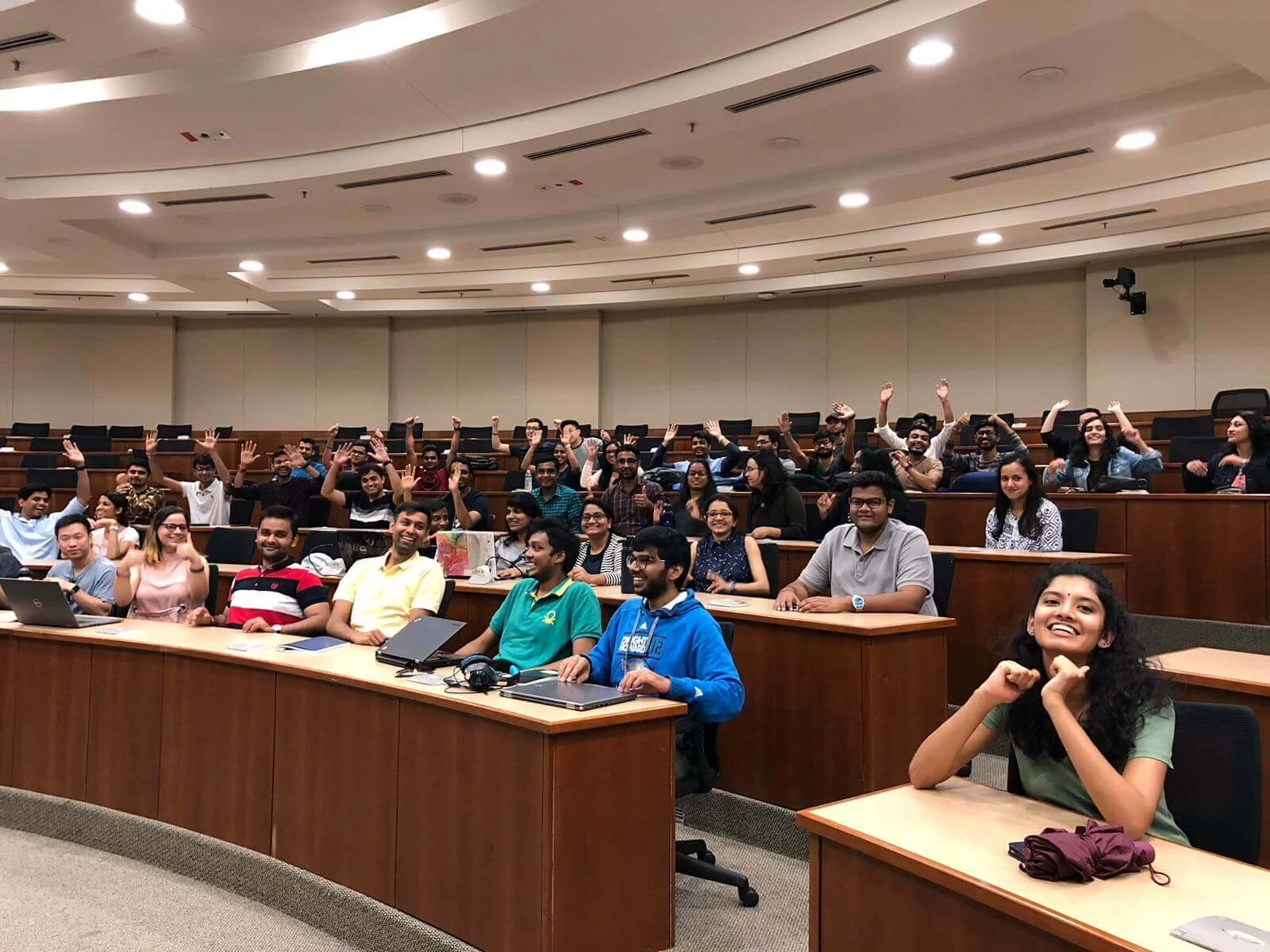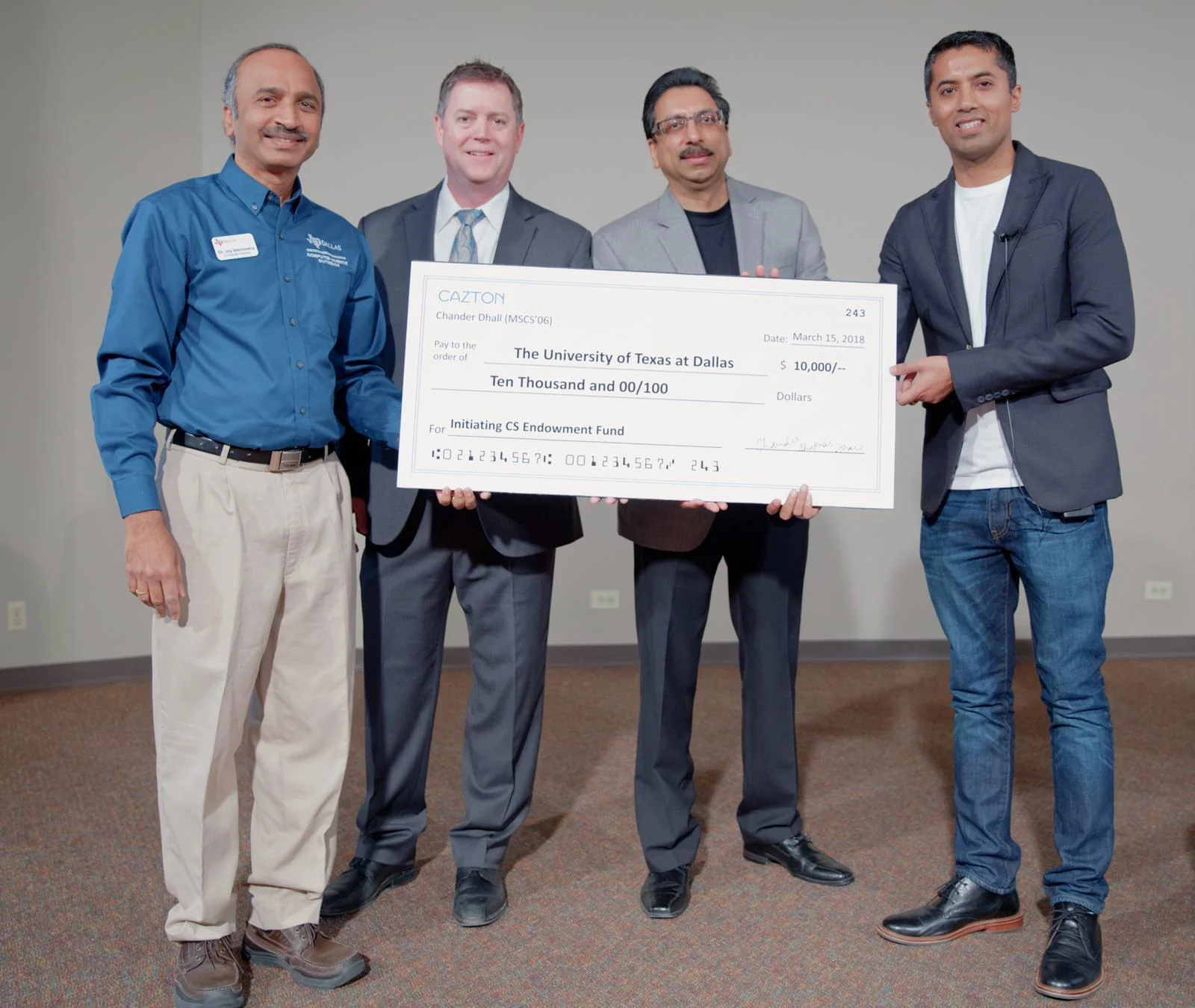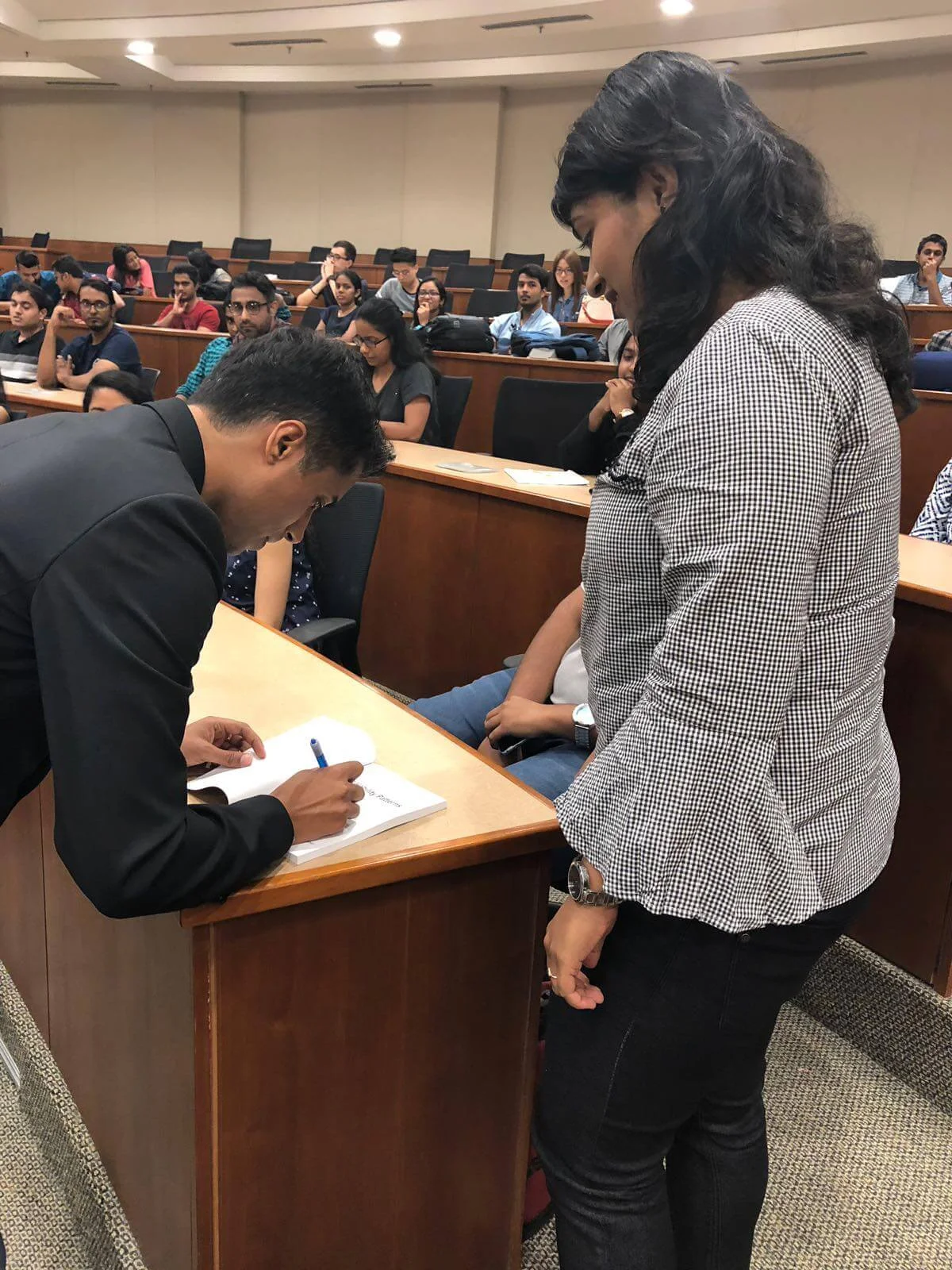Press Release: UTD 9/9
As an act of support for his alma mater, Chander Dhall heads to UT Dallas every semester to connect with the community and give back to the students. Chander was on campus last week, on September 9th, to give a talk about leadership and success as well as to hold book signing of his latest work, Scalability Patterns: Best Practices for Designing High Volume Websites, which was open to the faculty, staff, and student body. The audience in attendance ranged from first year undergrads to CS PhD students and more. There was an electricity in the room as Dhall spoke on the campus where he attended college not too long ago.

During the talk, he spoke about the mistakes he and his friends made in their careers at UTD and beyond. He shared some of his past struggles and failures, and how they made him a stronger businessman and individual. Students learned how to get the best out of UTD, whether it be with their majors, personal projects, or job/internship opportunities. Dhall gave his insights into the tech world: the best way to learn, trends in tech, helpful opportunities provided by UTD, and how to stay ahead of the curve. We heard some moving, motivational stories about what he learned while in school and how it informs the philosophy he lives by today.
Chander frequently says that if "I die today it makes no difference in the world, only to me." This is one way he likes to look at life, which is that achievements are not about taking things from the world. It's about the contributions we can make to the world to make it a better place. Whenever we look at achievements as a goal we've selfishly achieved, it's not really an achievement. He compares it to eating every meal alone; it can be done, but it's not as fulfilling as sharing a meal with others. Fulfillment, he believes, comes out of doing something bigger than yourself. When others are doing good and you know that you have done something to contribute to their goodness, that is incredibly fulfilling. It's not all about taking from others, that the fundamental ideal he lives by.
Chander also provided the audience with some insight into becoming a successful developer or tech professional. He says that "If I look at a code I wrote a year ago and think it's good, there's something wrong with me." He wants to always be improving, always learning from his past mistakes. He knows that no one is perfect, he believes we all know that no one is perfect. Which is why he says that the smartest guy in the room can also make a mistake, and the guy who thinks he's not the smartest guy in the room can have the best idea. There is something to everyone and we must learn how to get the positive qualities out of that person to make the best outcome. All of this requires honing your strengths, understanding your weaknesses, and checking your ego, which is a pitfall many successful individuals can fall into. When there is a lack of equality among a group, it can cause failure in even the most successful people. Dhall used a poignant quote from Steve Jobs to drive this point home, saying "it doesn't make sense to hire smart people and then tell them what to do; we hire smart people so they can tell us what to do."

This fruitful event was extremely helpful to students across a variety of majors including IoT, iOS, Android, Machine Learning (artificial intelligence), Web Development, Big Data, etc. Even though this was a computer science event, there were also neuroscience, and engineering students present ranging from undergrad, masters, and PhD level candidates. Dhall's company, Cazton., also donated $10,000 this year to the Computer Science department at UTD to show his everlasting support and appreciation for the school.

To end the event, Dhall did a signing of his latest book: Scalability Patterns: Best Practices for Designing High Volume Websites. In this book, Chander Dhall demonstrates current website design scalability patterns and takes a pragmatic approach to explaining their pros and cons to show you how to select the appropriate pattern for your site. He then tests the patterns by deliberately forcing them to fail and exposing potential flaws before discussing how to design the optimal pattern to match your scale requirements.
Cazton is composed of technical professionals with expertise gained all over the world and in all fields of the tech industry and we put this expertise to work for you. We serve all industries, including banking, finance, legal services, life sciences & healthcare, technology, media, and the public sector. Check out some of our services:
- Artificial Intelligence
- Big Data
- Web Development
- Mobile Development
- Desktop Development
- API Development
- Database Development
- Cloud
- DevOps
- Enterprise Search
- Blockchain
- Enterprise Architecture
Cazton has expanded into a global company, servicing clients not only across the United States, but in Oslo, Norway; Stockholm, Sweden; London, England; Berlin, Germany; Frankfurt, Germany; Paris, France; Amsterdam, Netherlands; Brussels, Belgium; Rome, Italy; Sydney, Melbourne, Australia; Quebec City, Toronto Vancouver, Montreal, Ottawa, Calgary, Edmonton, Victoria, and Winnipeg as well. In the United States, we provide our consulting and training services across various cities like Austin, Dallas, Houston, New York, New Jersey, Irvine, Los Angeles, Denver, Boulder, Charlotte, Atlanta, Orlando, Miami, San Antonio, San Diego, San Francisco, San Jose, Stamford and others. Contact us today to learn more about what our experts can do for you.


